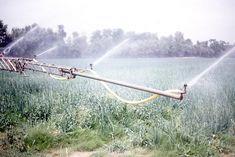
The UK fresh produce industry is making excellent progress when it comes to raising standards in the use of pesticides, a report has claimed.
The Voluntary Initiative Steering Group's fourth annual report has highlighted real progress in raising standards and behaviour in pesticide use as well as protecting water quality and benefiting biodiversity.
Professor Barry Dent, chair of the VI Steering Group, said: “We are pleased with how much has been achieved by the collaborative effort of our stakeholders and the whole industry. It is vital to achieve our final March 2006 targets - so there can be no letting up.”
By March 2005, 15 VI projects had been completed with 28 still in progress. Crop Protection Management Plans are now in place for some 1.36 million hectares, which exceeds the March 2006 target of 1.2m hectares.
The National Register of Sprayer Operators achieved its 2005 target of 17,500 members four months ahead of schedule and has introduced the concept of continuous professional development to those who apply pesticides on farms.
When it comes to sprayers, half the treated area was covered by machines that had been tested under the National Sprayer Testing Scheme - exactly on target.
Protecting water quality has been at the heart of the VI since its launch. During 2004/5, the Environment Agency's analysis of its national database reported a 23 per cent decline in pesticide exceedances during 2003. The VI Steering Group reaffirmed 30 per cent as its national target with 50 per cent as targets for individual pilot catchments.
In some catchment areas, the report says that pesticide residue levels fell by up to 60 per cent. However, subsequent wet weather caused high peaks of some active ingredients and work will continue to understand the causes and refine advice on avoiding recurrence.
Standards of advice on environmental protection have also been raised, with 500 farmers and advisors gaining the BASIS Biodiversity and Environment Training for Advisors certificate - 100 more than the target.
Biodiversity targets are more difficult to measure. However, chick survival rose by 49 per cent in skylark patches in the Sustainable Arable Farming for the Environment Project, in which the VI was a leading sponsor.
The area of greatest concern is not agriculture, but local authorities within the amenity sector. The Steering Group comments on tenders being assessed on price, not quality and the failure of this sector to even adhere to already established best practice guidelines.
The annual report also addresses the future beyond the VI.
“The EFRA Select Committee, to whom we gave evidence early in 2005, stated it is 'crucial that the benefits of the Voluntary Initiative are not lost after April 2006.' The Steering Group is actively addressing this now,” added Professor Dent.



